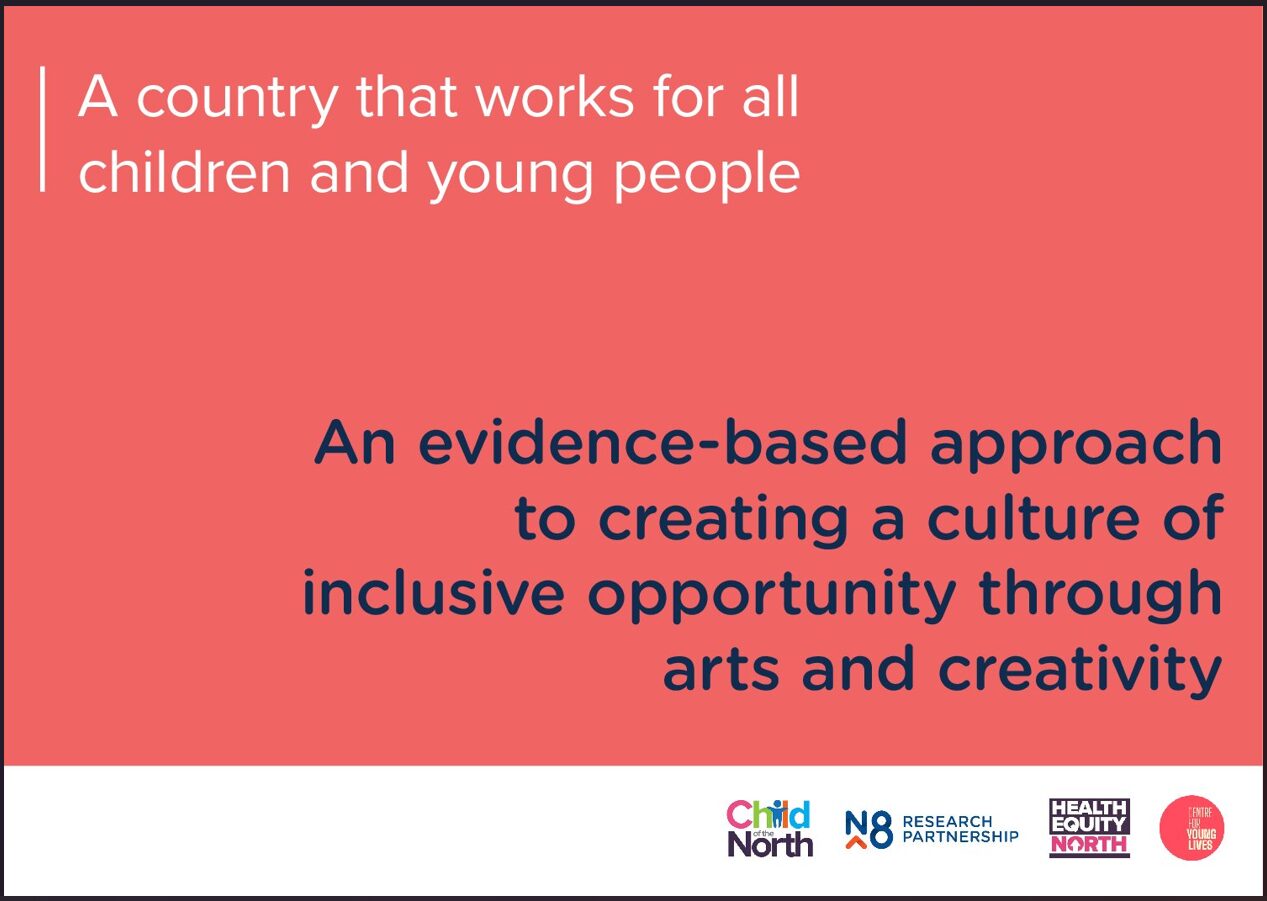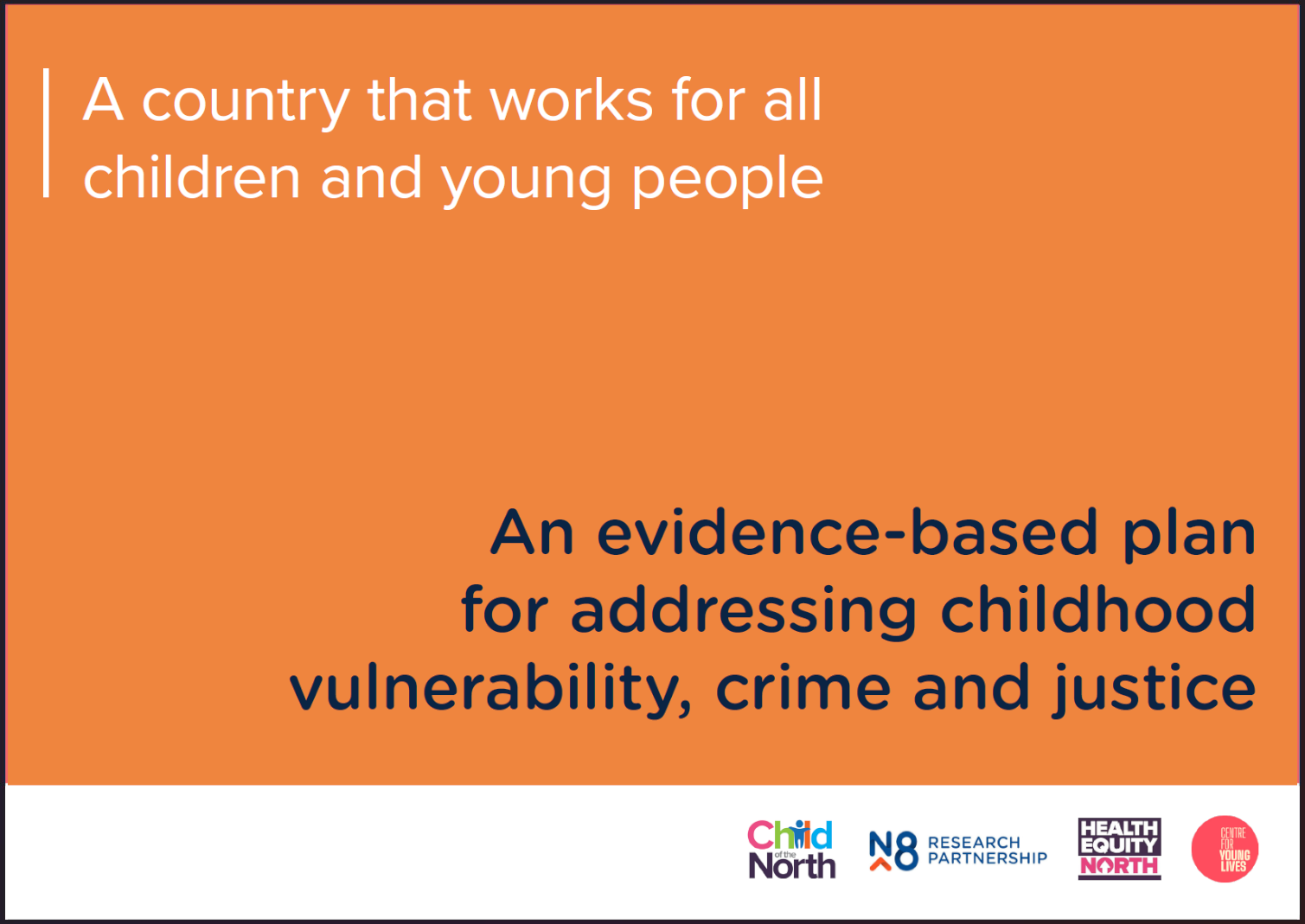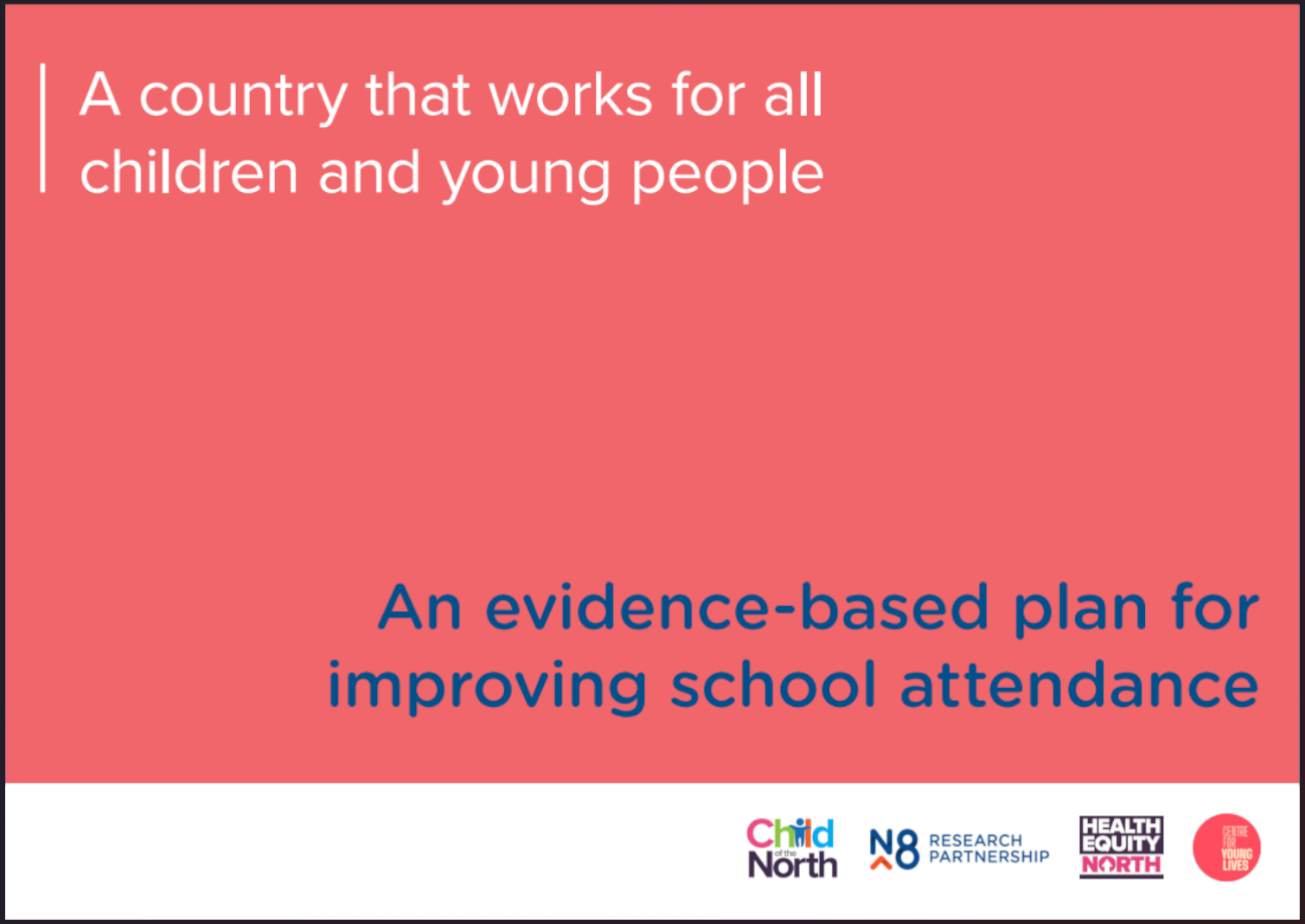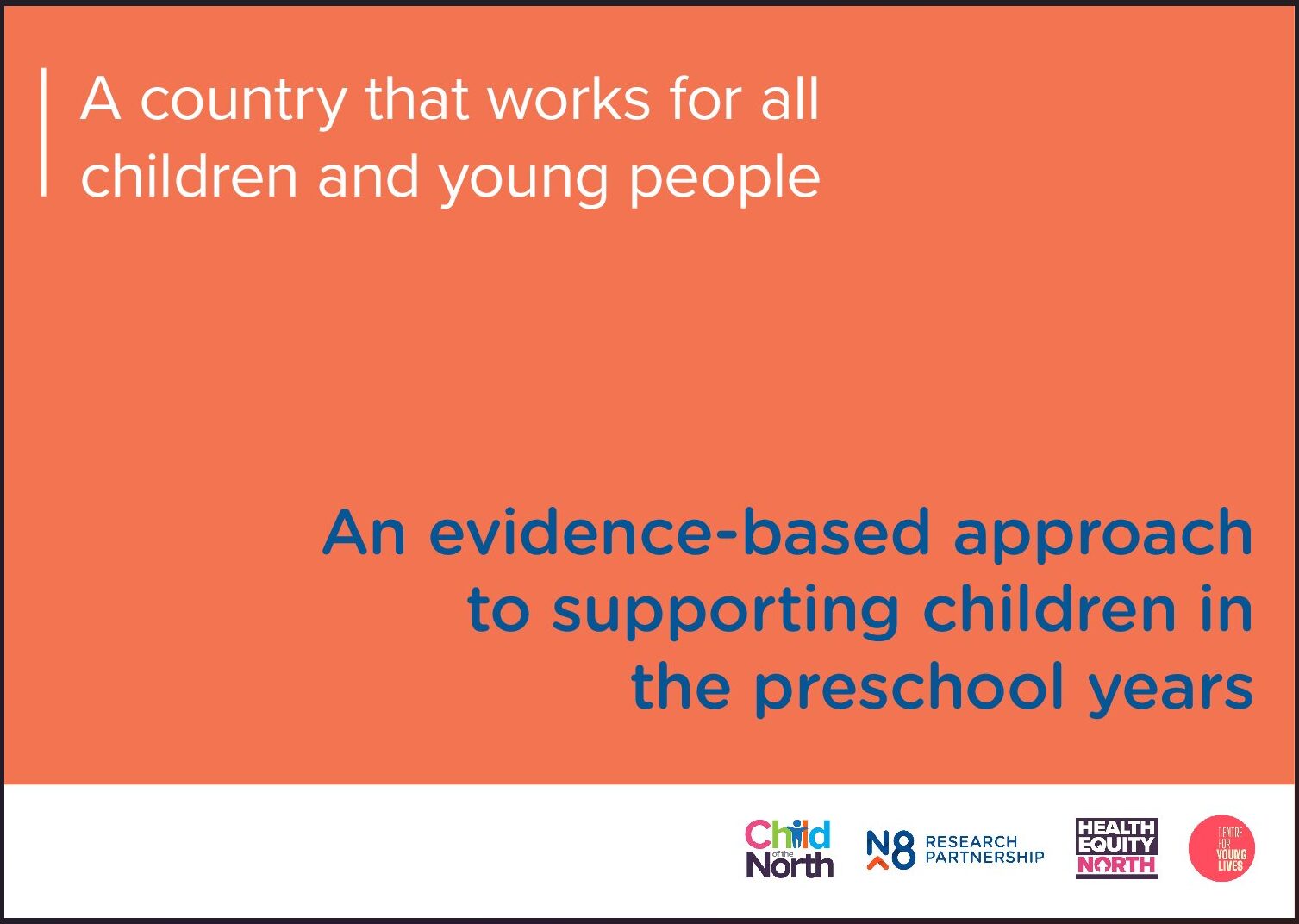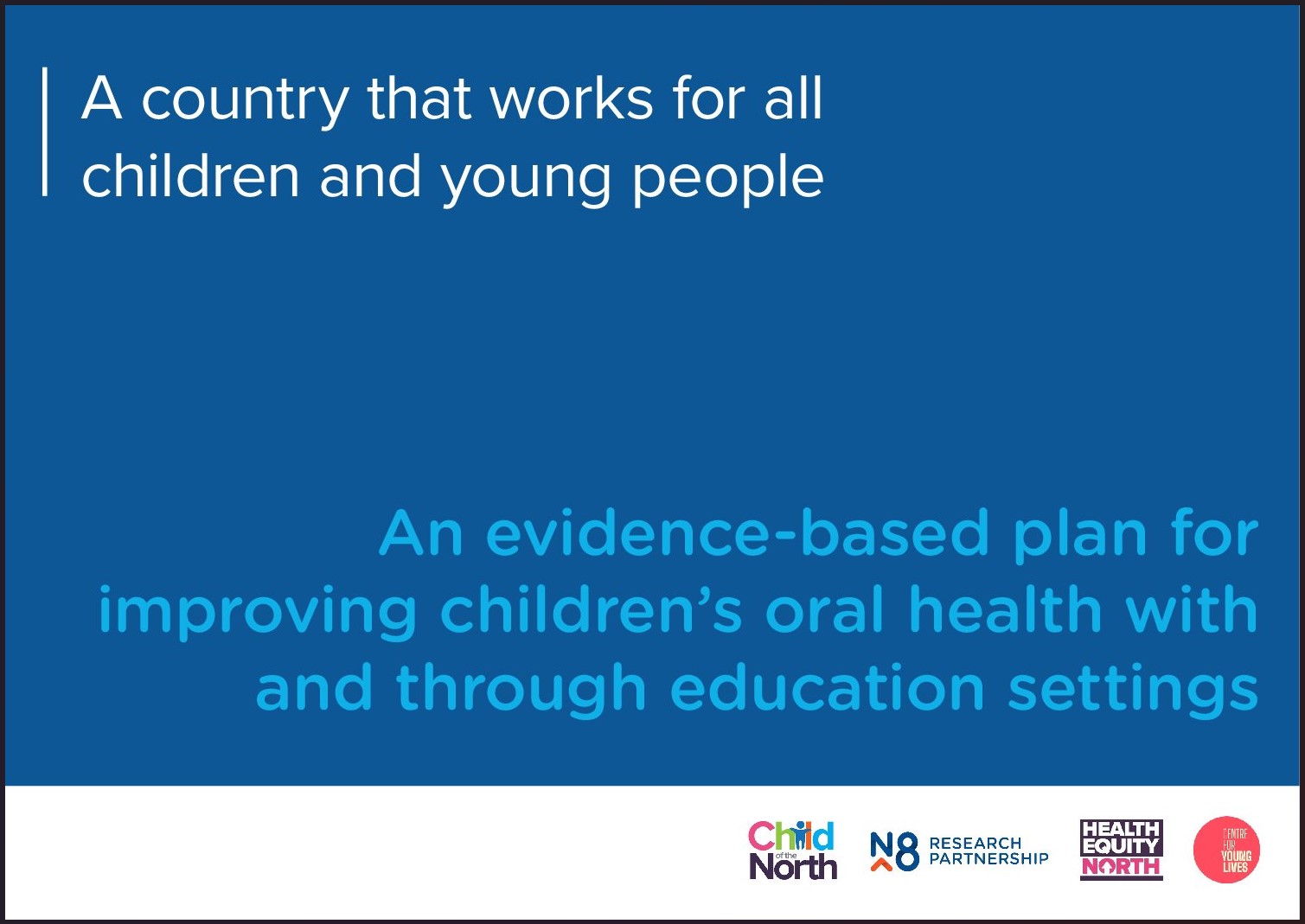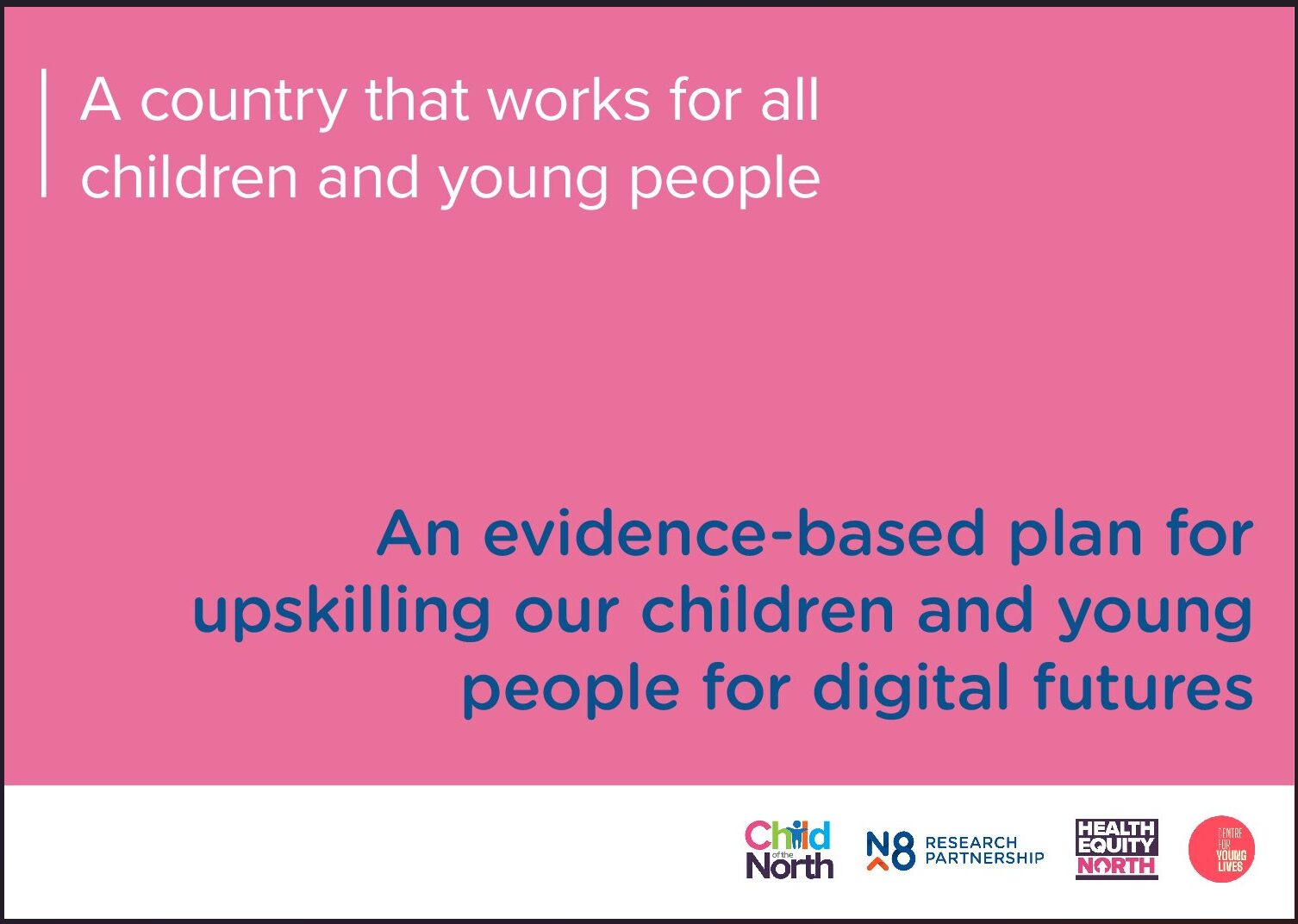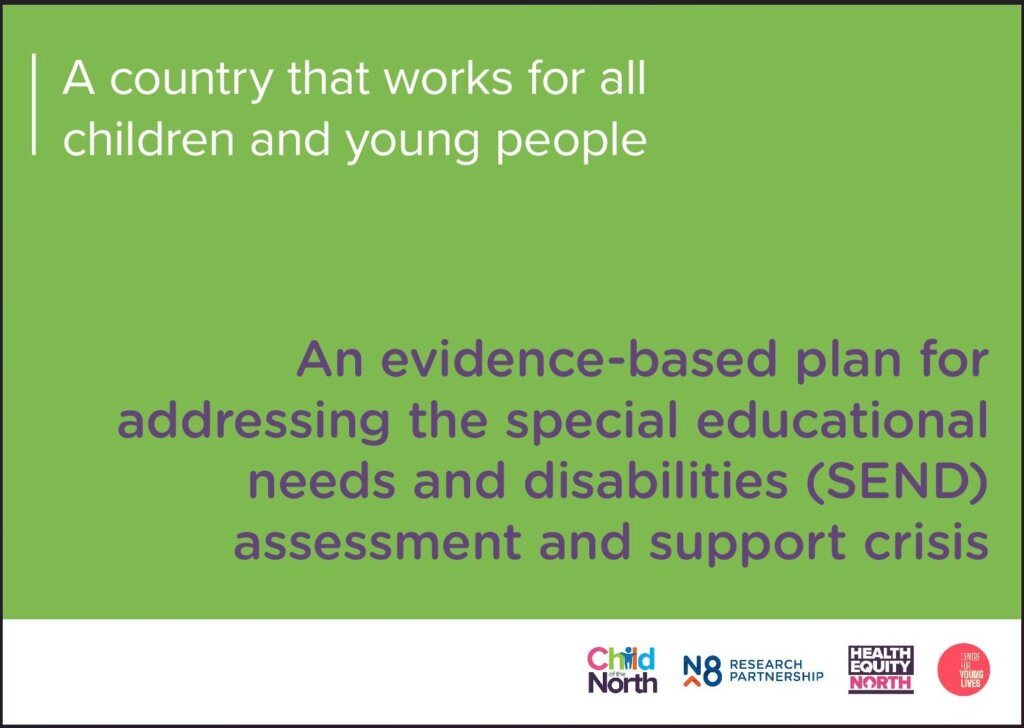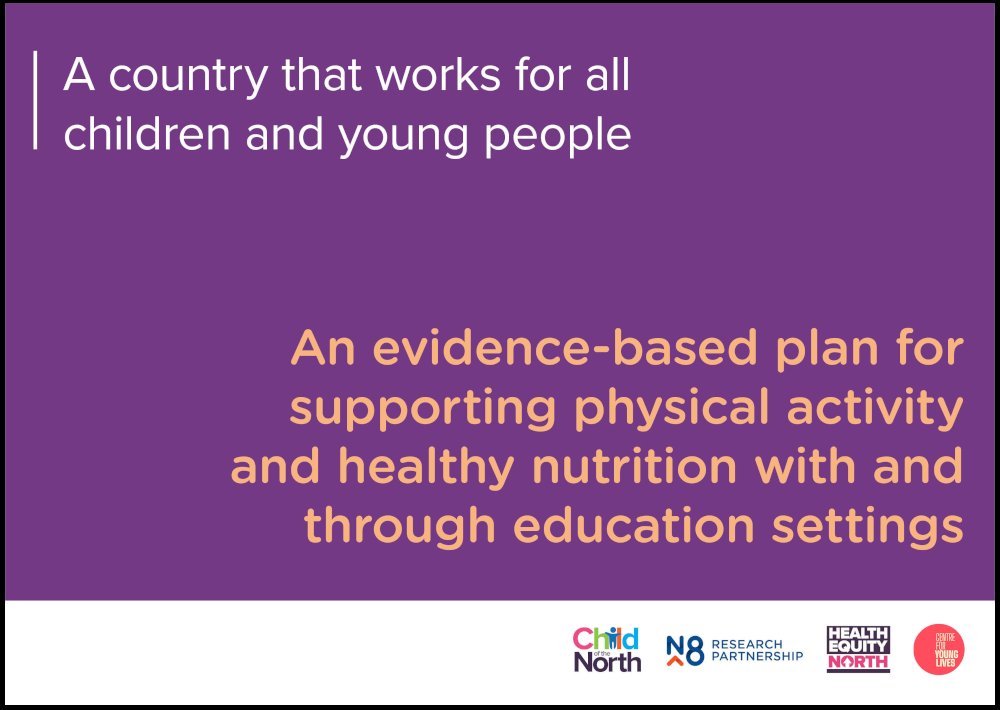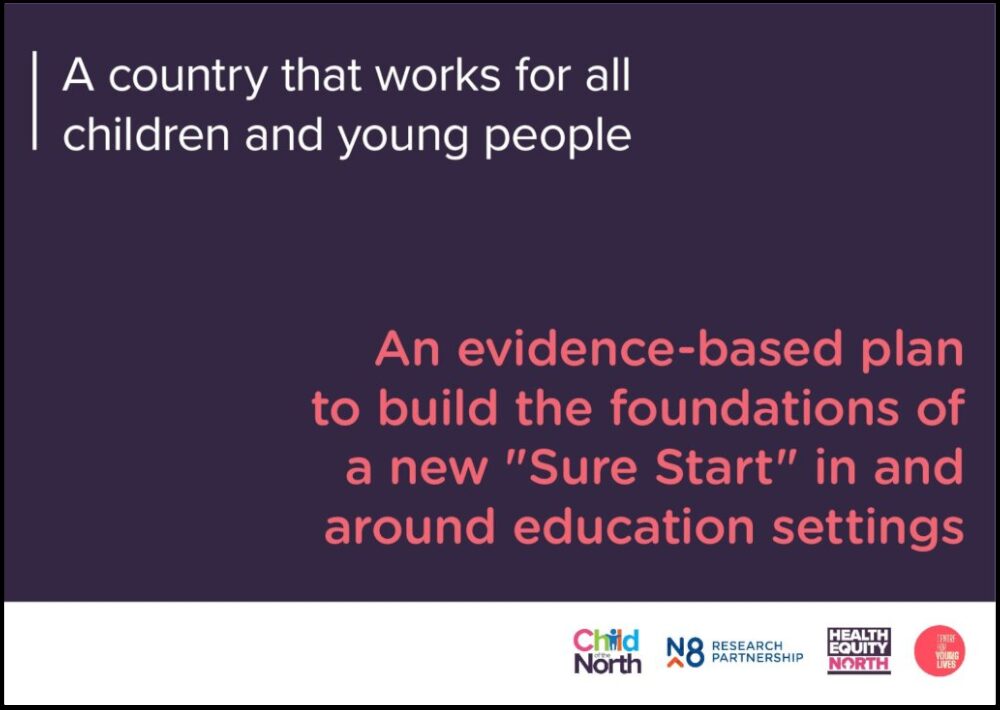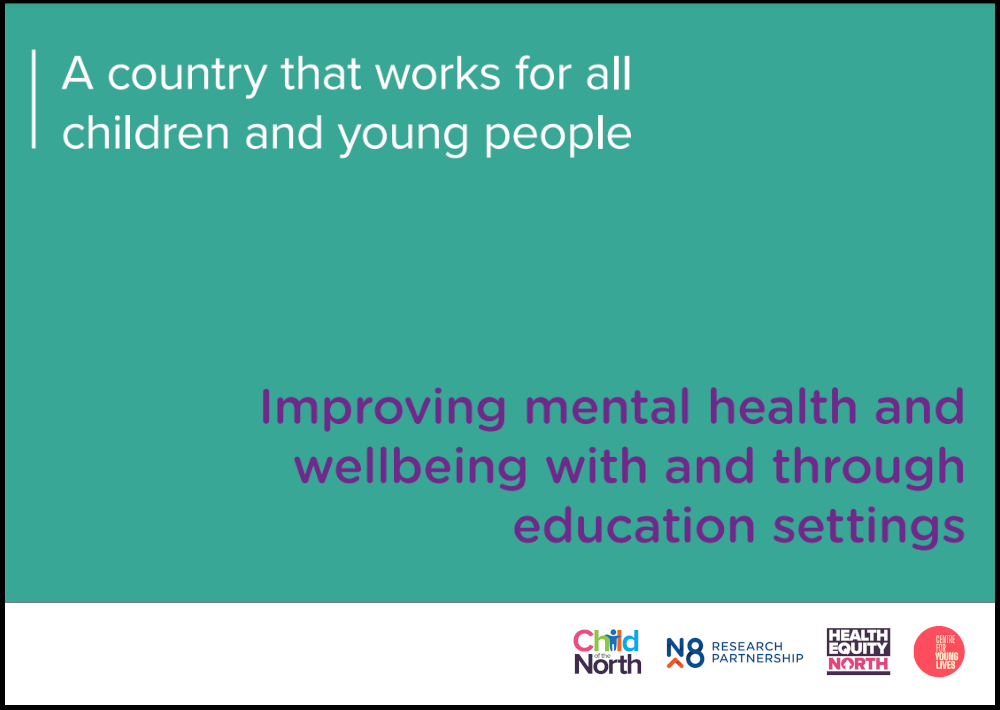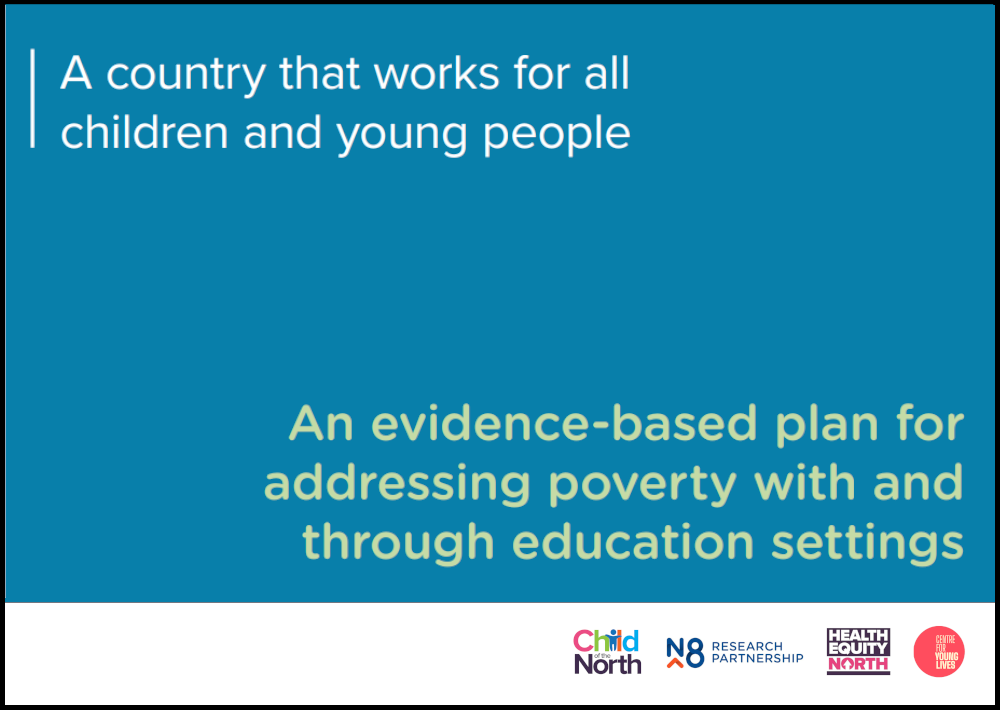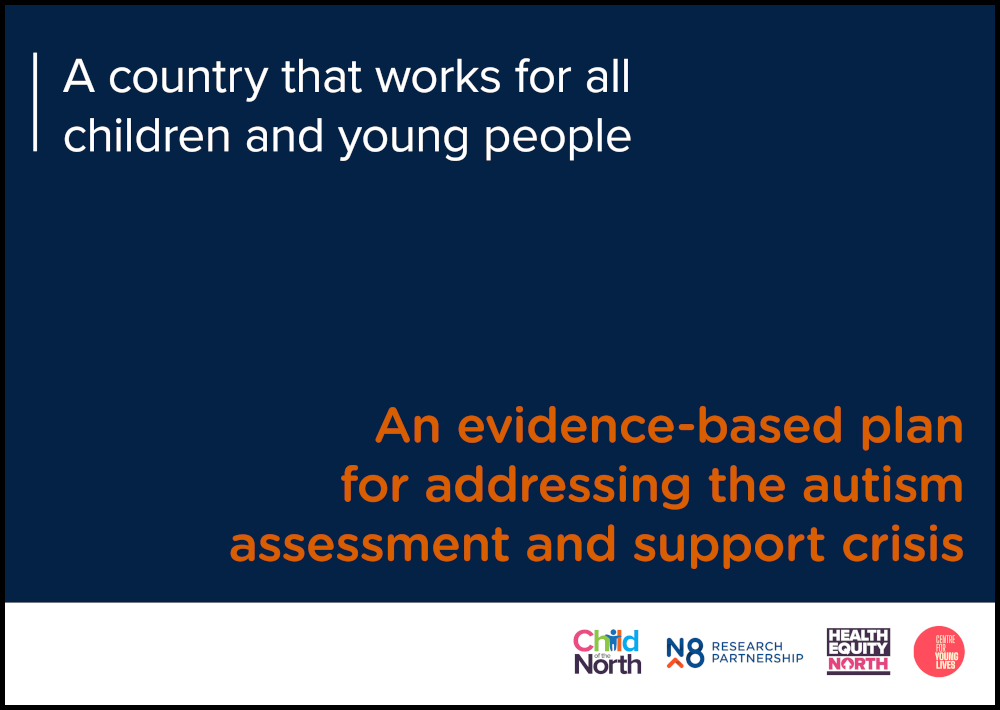Child of the North 2024/25 Campaign

A country that works for all children and young people
A major new report series, produced jointly by Child of the North and the Centre for Young Lives, setting out practical, evidence-informed ways in which government can reset its vision for children and young people.
An online petition – Prioritise Children & Young People in the UK’s Next Political Cycle – has also been launched.
A Children First Government
Over recent years, the experience of childhood for many children has been a difficult one, and the root causes that diminish their wellbeing and life chances, although often glaringly obvious, have been put Into a box marked ‘too difficult’. Too many aspects of some children’s lives are being overlooked by those in power. These are young citizens who do not have a vote, and so lack the power to challenge government to act in their best Interests.
As a result, problems are piling up, with little sign they will be solved any time soon. There are record numbers of children in care, millions of children experiencing poverty and hardship, there is an exams attainment gap that remains stubbornly high, and an education system where one in five young people are leaving education without basic qualifications. Thousands of children are starting school already way behind in their social development and there is a children’s mental health and wellbeing crisis.
Child of the North and the Centre for Young Lives believe it doesn’t need to be this way. We want the new government to rethink how it organises and prioritises its work to focus on improving every aspect of childhood. Joining forces at this unique moment in the political cycle, we believe we have an opportunity to bring about a dramatic change in how the government views children and families, the way it invests and the aspirations it has for every child.
We are proposing that we embark on a joint ‘Children First Government’ programme to make this happen.
Report Series
The cornerstone of this programme will be a series of reports, to be published throughout 2024 and into early 2025, which will show how putting the interests and life chances of children and young people (CYP) at the heart of policymaking and delivery is crucial to Britain’s future. They will shine a light on some of the biggest challenges facing government, including reducing child poverty and improving support for CYP with mental health conditions. They will also provide rigorous research and pragmatic, evidence-based recommendations which acknowledge the ongoing financial limitations on government spending.
A total of twelve reports will be delivered over the next year, each focusing on a different topic identified by external stakeholders as the greatest challenges we face in supporting our CYP. The reports will demonstrate the capacity of universities and research institutions to provide evidence-based recommendations and suggest actions that could and should be taken by every part of the system to create the changes so desperately needed throughout the UK.
Each report is written by researchers from the N8 universities in collaboration with a wider academic community across the North of England and beyond (the N8+) as part of the Child of the North initiative, alongside the new Centre for Young Lives thinktank.
The series is grounded on seven principles for reform:
- The UK government must “put children first” – The future of a country depends on a healthy workforce, equipped with the skills needed by the economy and society. Childhood determines long-term health and is the critically important period for developing the core skills needed to function within society.
- Inequity must be addressed – This will reduce the financial burden of poor population health on public services. Concurrently, economic stagnation must be reversed to generate wealth and ensure the UK makes the best use of all its assets (i.e., the brilliant young minds located across all our communities).
- Place-based approaches must be adopted – Geography, culture, economic activity, and other factors vary between localities, changing the way that support needs manifest, and the way communities prefer to engage with services. New approaches to reaching and helping families must be planned and aligned to the needs and preferences of the locality and its communities.
- Public services must work together more effectively – The needs of children and families cannot be neatly divided into silos such as “health”, “education”, “social care”, “criminal justice” etc. We must recognise that our current organisational arrangements are not fit for purpose and find new ways of delivering connected public services so that the necessary holistic (“whole system”) solutions to complex problems can be implemented.
- Education must be at the heart of public service delivery – Schools and other educational settings need to be at the epicentre of support. For example, typical “outside support” from specialist services (e.g., child and adolescent mental health services (CAMHS)) needs to be delivered within the school gates. In doing so, we start to remove the additional barriers encountered by the most disadvantaged children and reduce the burden placed on families.
- Universities must become the “Research and Development” departments for local public services – Universities can bring together insights from across multiple disciplines, ensure decisions are based on the best possible evidence, oversee evaluation of service delivery and train future health, social care, and education professionals.
- Information must be shared across public service providers and used effectively – Data are currently collected within organisational silos, which fails to reflect the reality of how families interact with services. Only by connecting our public service data can we: (i) begin to understand how services intersect and interact within families; (ii) allow the essential information sharing that will safeguard children.
Previous Reports
The series builds on the findings of the Child of the North All-Party Parliamentary Group’s Addressing Education and Health Inequity: Perspectives from the North of England report. It also follows on from the Child of the North: Building a fairer future after COVID-19 report, which laid bare the stark North-South divide in childhood inequalities.
Copies of these and other previous Child of the North reports can be found on our Reports page.
Petition for change
Child of the North and the Centre for Young Lives have launched an online petition calling on politicians to prioritise children and young people in the next political cycle, and to deliver on the ambition for a ‘Children First Government’.
Sign up for updates on our 2024/25 Campaign
We will only use this data for the purposes of providing updates on the Child of the North 2024/25 campaign and report series. For more information see the Privacy Policy at https://www.sheffield.ac.uk/privacy
Contact Us
Stephen Parkinson, Research Partnership Manager




